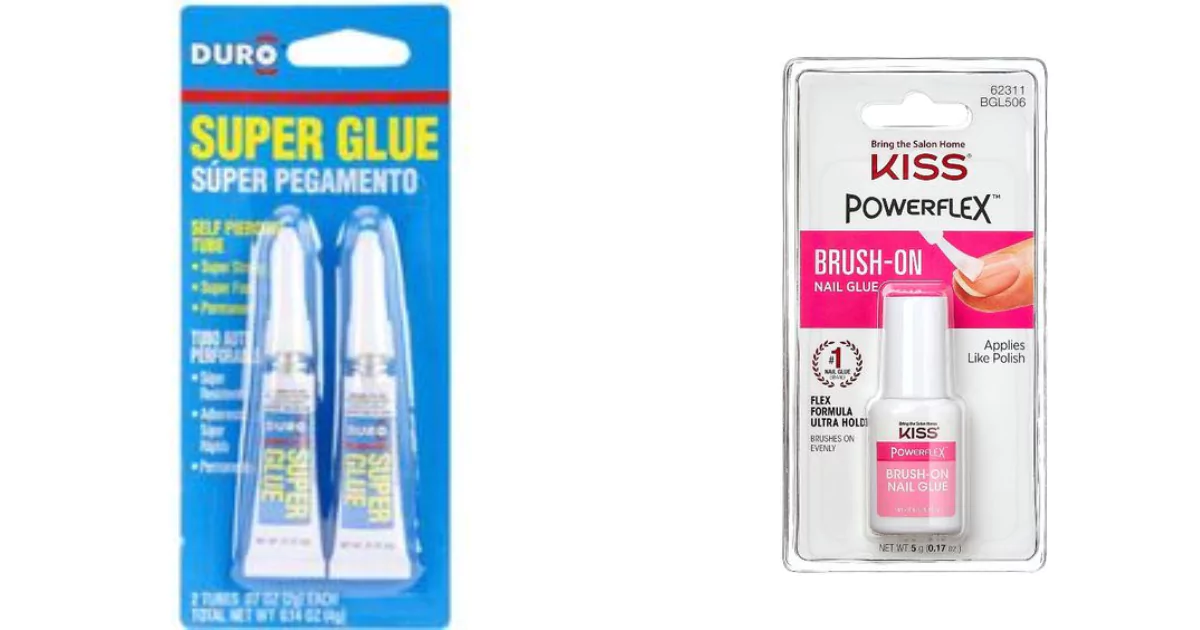Introduction
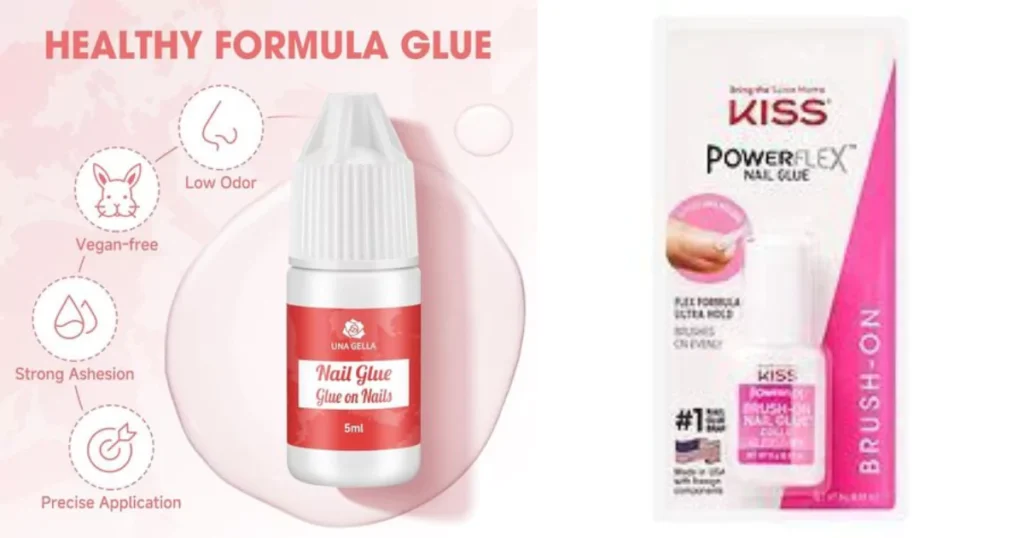
Nail Glue Vs. Super Glue When it comes to DIY nail enhancements or quick repairs, there are two adhesives that you more than likely will run into — they’re called…you guessed inil glue super glue Although they might look alike, both products differ in the sense that they are meant for different applications and possess features which make them suitable to serve particular purposes. Knowing the key distinctions between nail glue and superglue can allow you to select what is finest for various circumstances.
1. What is Nail Glue?

A type of adhesive that bonds and seals artificial nails, nail tips or sculptures. First and foremost, nail glue is traditionally formulated with a solvent — most often ethyl cyanoacrylate, which acts as the adhesive molecule that helps it bond easily to the natural nail. The nail glue is commonly supplemented with extra substances like plasticizers so that it becomes supple and the bond does not become frail leading to a quick break.
Properties of Nail Glue:
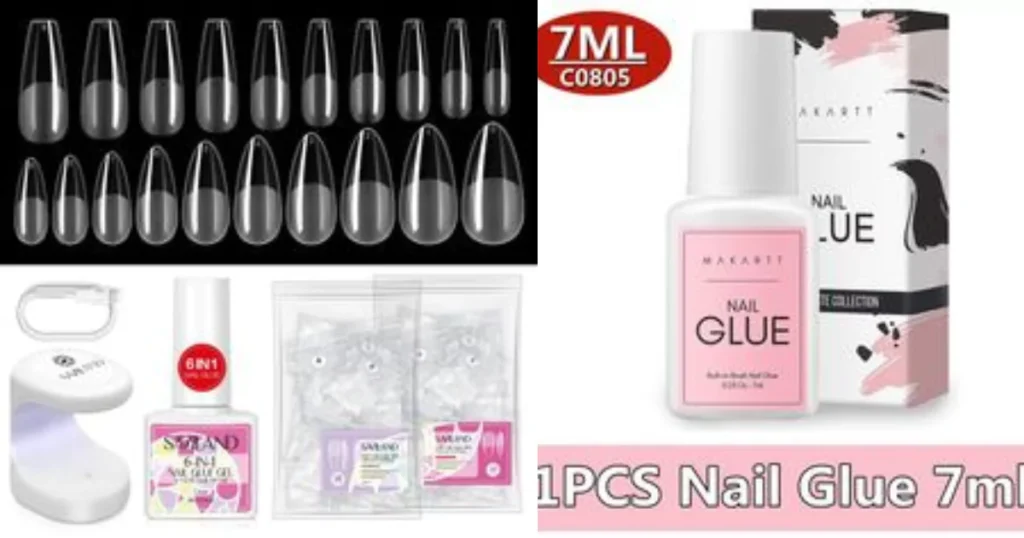
- Nail Glue is a Flexible Bond: As the nail glue cures, our specialized formula keeps it slightly flexible and allows for natural movements of your hair.
- Fast Drying: You can use nail glue for fake nails, as this dries super fast within a second only.
- Nail-Specific: Made exclusively for use on nails so when properly applied, it is less likely to irritate or harm.
- Long-Lasting: Nail glue gives a long-lasting, waterproof bond that is needed to withstand certain circumstances for your fake nails.
2. What is Super Glue?
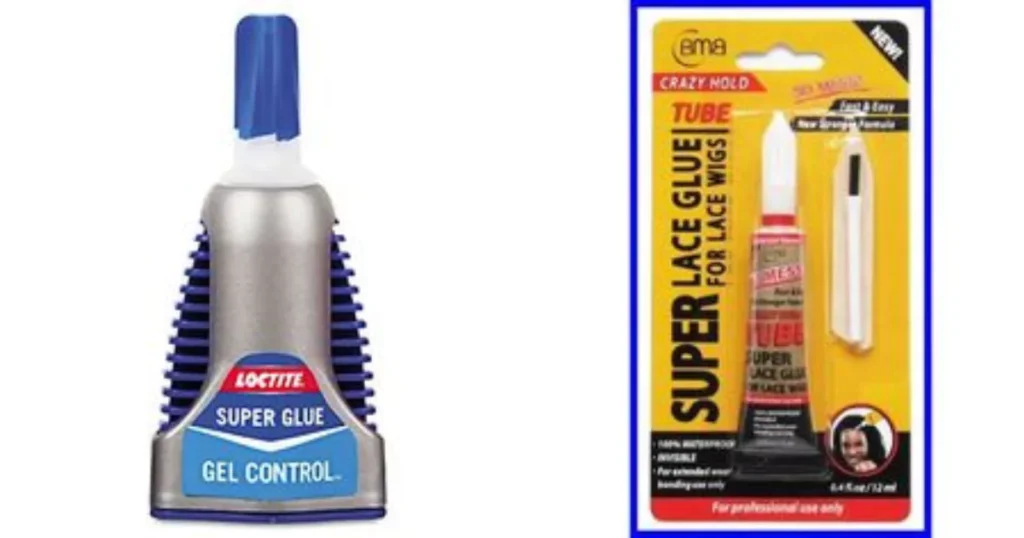
Cyanoacrylate, often known as super glue, is a quick-bonding and sturdy adhesive used for bonding materials such as plastics, metals, glass or wood. It sets a hard, stable bond in a few sec. There are several types of super glue, but none made to use on nails or skin.
Properties of Super Glue:
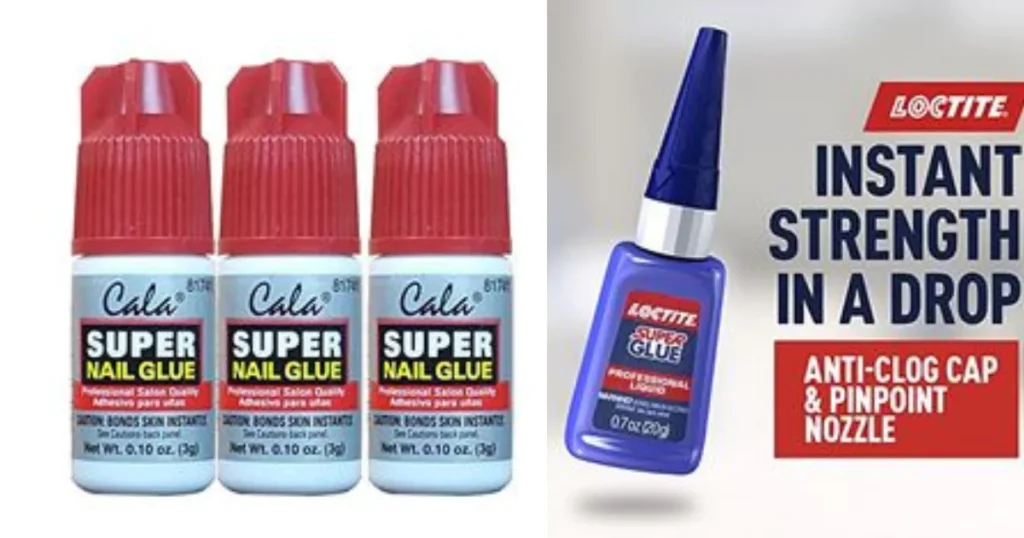
- One of the Best, Strongest Adhesives: Super glue forms a very strong bond that is ideal for making heavy-duty repairs.
- Strong and Stiff Bond: Another difference is that nail glue only dries enough to bond nails, making it stiff but not rigid (for natural movement of the finger).
- Versatile: You can use super glue on a lot of things but not for nail and cosmetics.
- Possibly Irritating: Skin irritation or damage can occur when super glue is misused — even the nails are sensitive areas.
3. Differences with Nail Glue and Super Glue
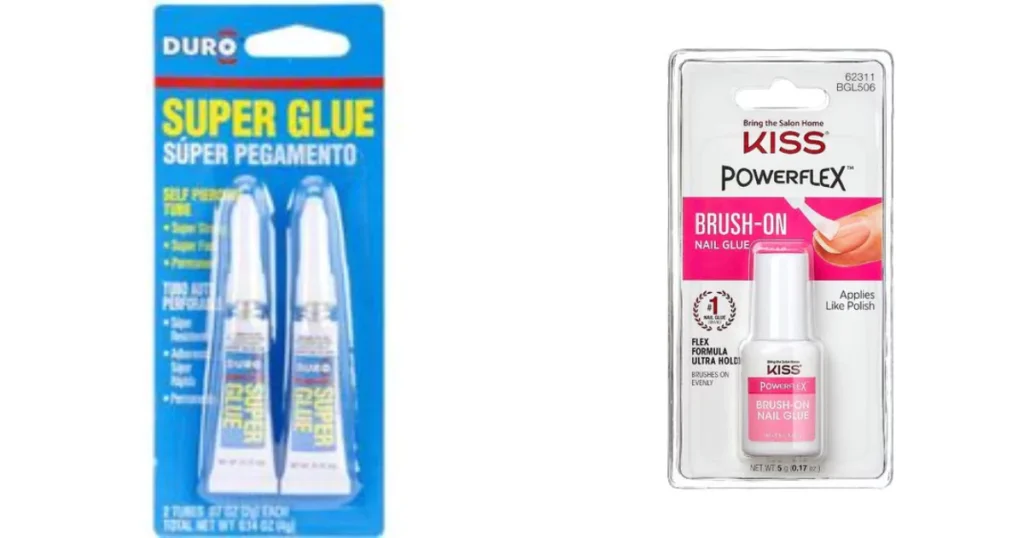
Both nail glue and superglue contain cyanoacrylate but in different formulas with very distinct purposes- Here are the main divergences between the 2 adhesives:
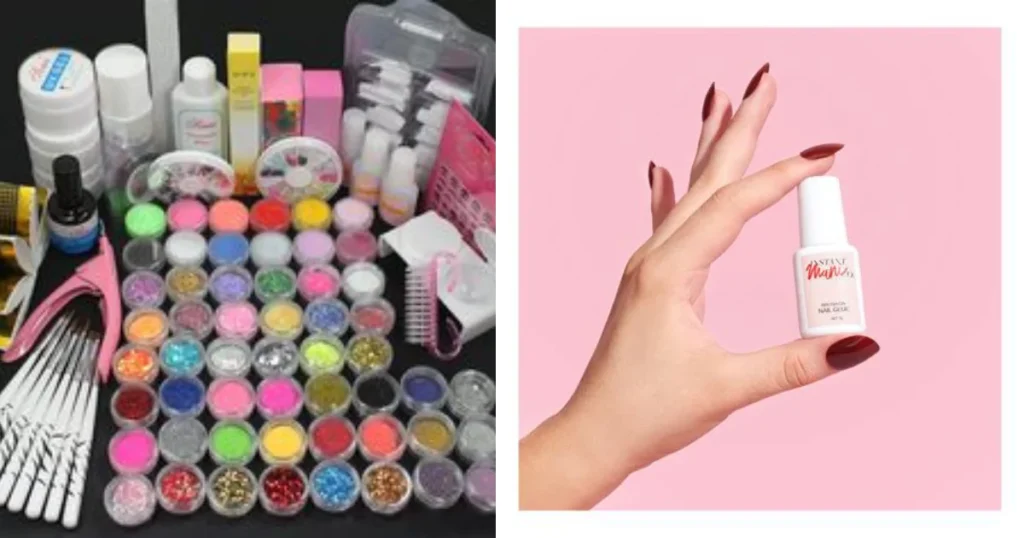
a. Flexibility
Nail Glue– Remains squishy after it is cured; good for the natural flexing of nails.
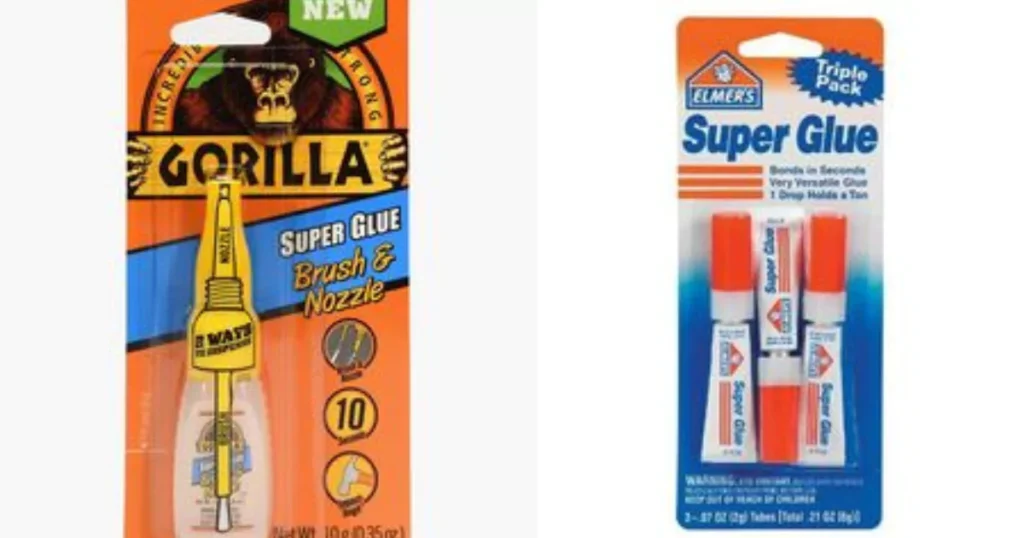
Super Glue: Becomes a stone hard rigid bond that can squeeze, lock and harm the nails
b. Drying Time
A few types of nail glues: •Fast Set which also dries super quick but still gives seconds before it sets up so you can position artificial nails or decorations as needed.
Super Glue: Cyanoacrylate glues such as super glue dry almost immediately so it is easy to accidentally bond skin and the fast drying time makes making adjustments difficult.
c. Safety for Nails
Mainly your Safety Nail Glue: While it is a built-in product to secure proper for invented use in nails preventing possible damages or allergies.
Super Bonding Glue: Do not use on nails; avoid contact with skin, can cause irritation or damage and may burn!
d. Removal
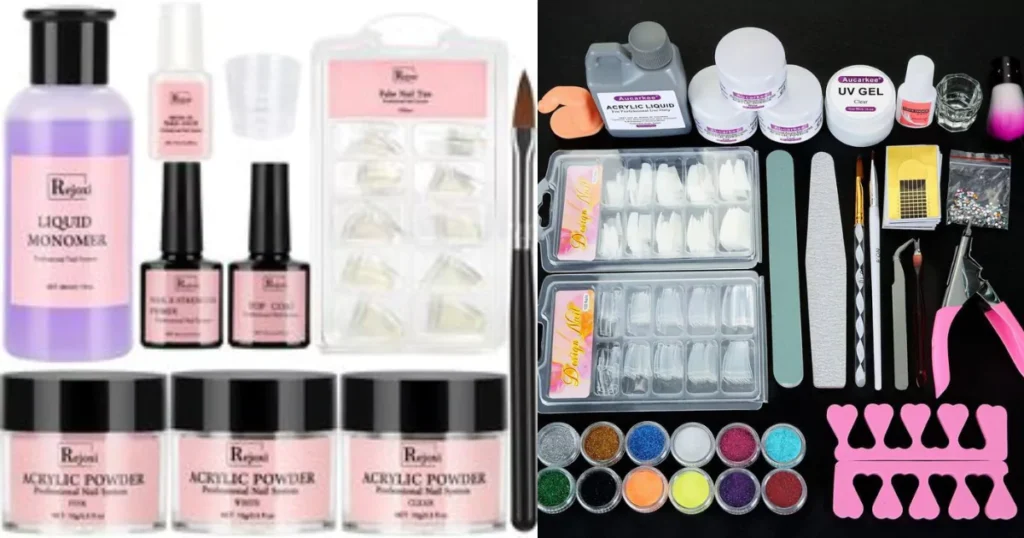
Nail Glue — remover with acetone based nail polish, less dangerous for the natural plate of shop materials.
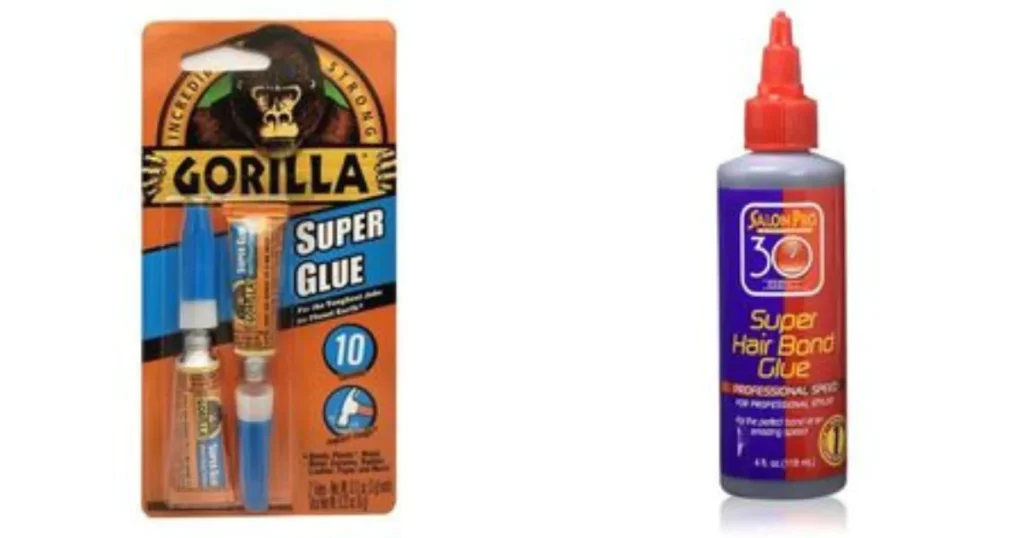
Super Glue: Can be removed with strong solvents like acetone or other nail adhesive remover (not recommended, because it burns and is harmful to the skin besides burning your nails).
e. Application
Compare — Nail Glue with Bonus Siris Microscopic Current 1Pcs New With Applicator finer designed to be easier, smoother and even or Tip Line design by Application of the Top Coat on Both nails
Super Glue: Comes in tubes with a generic applicator, making it difficult to use for Nails.
4. Is Super Glue Nail Glue Safe?
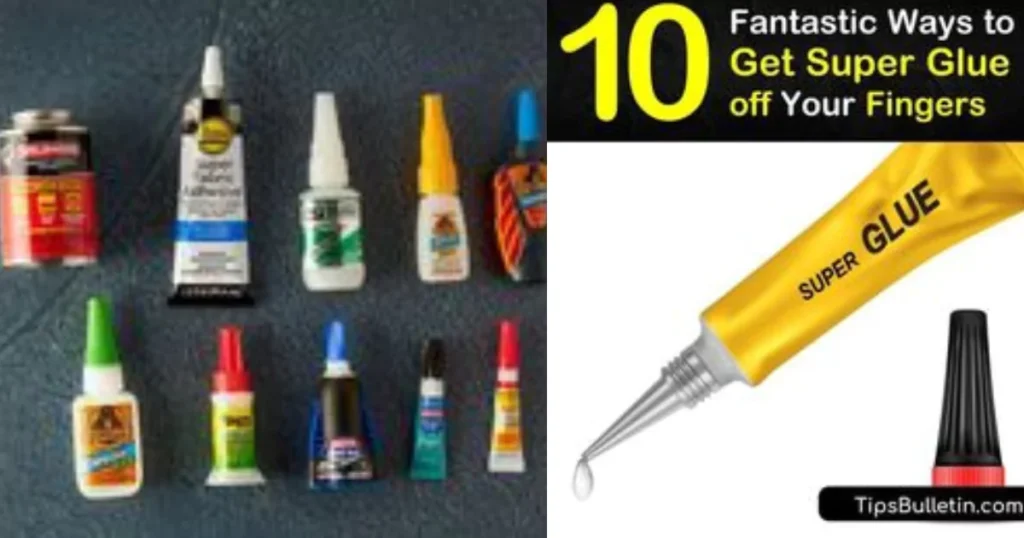
Technically possible but not advised, you can also use super glue as a substitute for nail (glue). The hardness of super glue can also hurt and likely lead to damaging the natural nails. Secondly, super glue creates a powerful bond that may be nearly impossible to remove in the end and if you do get it out of your fixture eventually what have you really done but more harm than good. If you run out of nail glue, hold in what feels like suffering until enough to go find the appropriate adhesive than by slipping a super— establish.
5. Choosing the Right Adhesive
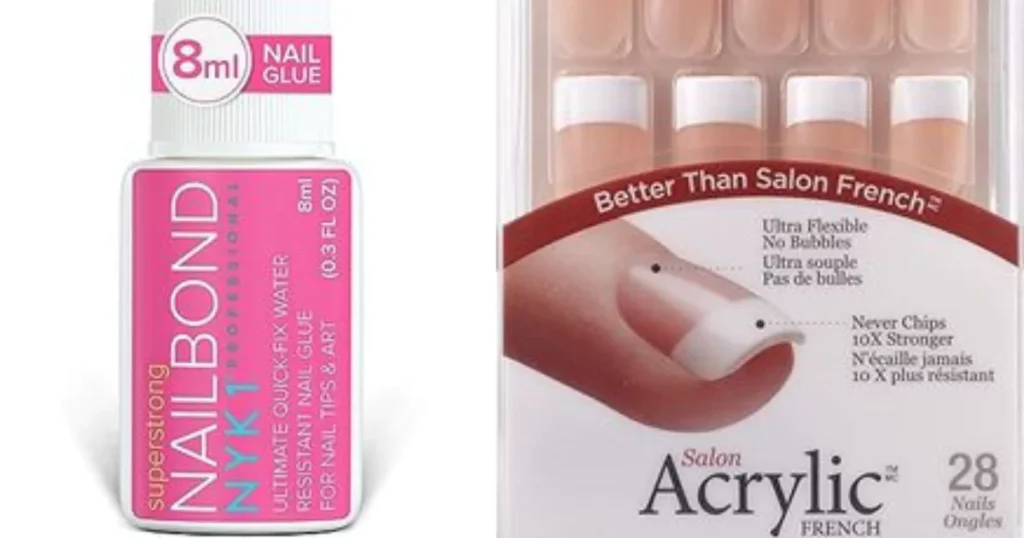
Reasons why you want to consider nail glue or super glue
- Function: Nail glue is designed to apply the artificial nail, nails tip or decoration. Save the super glue for non-cosmetic repairs and applications.
- Flexibility: Nail glue is flexible and moves with your nails, while superglue hardens and could be uncomfortable.
- Super glue uses: As superglue is not designed to be in contact with the skin, when using it can burn a hole through your nail beds which then may result in infection over time. Nail size does matter.
- Removal: Nail glue can be removed without damage by soaking in acetone, while superglue may need to use stronger chemicals that will harm your nails.
6. How to Use Nail Glue Properly
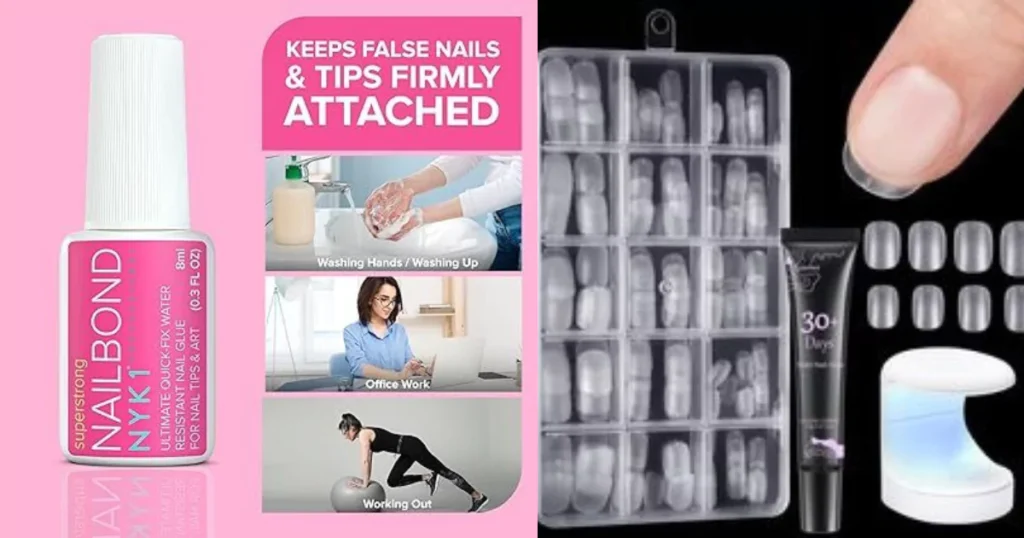
Remember to always keep in mind these tips when using nail glue for a perfect job:
- Clean + Dry Nails: Wipe your natural nails clean and make sure they are thoroughly dry before applying nail glue as this will provide a better grip.
- Only a little glue: Only use as much adhesive to prevent leakage and keep it looking clean
- Avoid Touching Your Skin: This may irritate the skin as if glued.
- Nail glue should be used in well ventilated areas, as like any product it will give fumes.
- Proper Storage: Polish nail glue well and retain it in a neat, dry situation so that its quick-fix feature can be kept unchanged.
7. FAQs
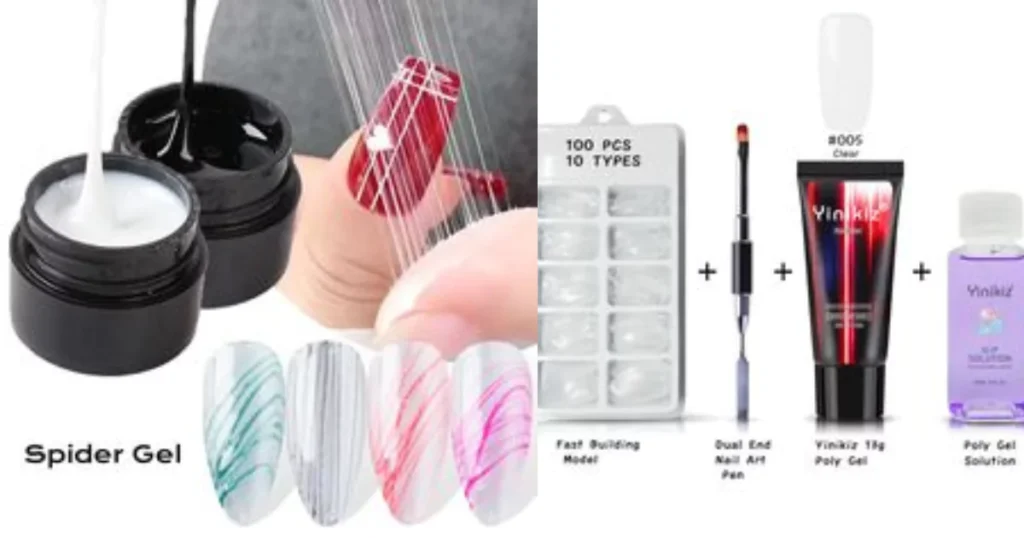
Q1. May I use PAS in an emergency if it breaks down?
Shoemaker worm: Super-glue in a pinch but not really recommended. Superglue is way too strong and inflexible a bond to use on real nails! This repair is best suited to waiting for the nail glue or getting a professional remmarroe.
Q2. But for how long, the nail glue works on artificial nails?
Artificial nails that use nail glue will usually last between one and two weeks, however this can vary depending on the quality of the glue used as well as how you apply it to your artificial nails.
Q3. Is nail glue toxic?
Proper use of nail glue is generally safe. But, take caution not to breathe in the vapor or swallow this glue as it can be toxic.
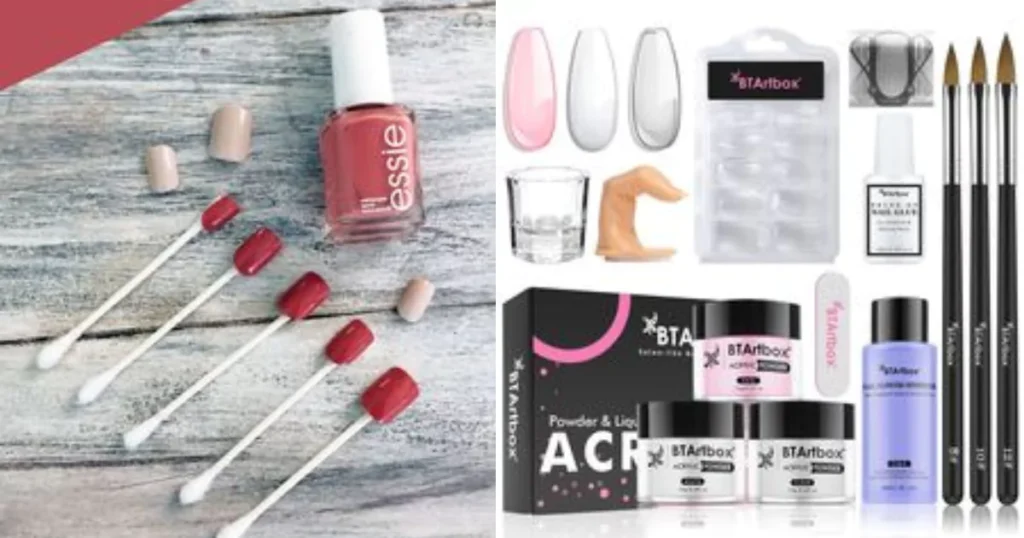
Q4. So what do I have to do against it, if super glue has come to me and a small drop is glued on the skin?
Soak an affected area, where super glue has been stuck with warm soapy water and then peel them off. DO NOT yank at it or try to rip it off cause you can damage your skin. If glue does not come off easily, use an acetone-based remover that will dissolve it.
Q5. May I Use Nail Glue With Other Things Like Repairing Small Items?
Nail glue is made for nails and may not be as good at repairing non-nail items. Super glue or other adhesives would be better for doing minor household repairs.
Conclusion
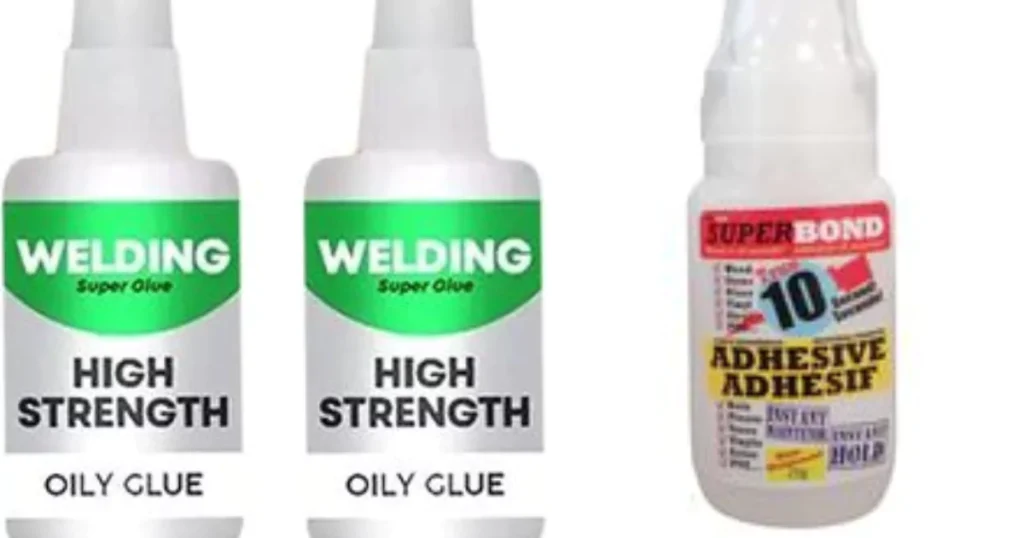
Nail glue is not the same as superglue, although there are some commonalities between these two adhesives. Nail glue is the safer, non-corrosive adhesive for putting on fake nails or fastening decorations to fingernails while super glue can be used for heavy-duty fixes of items made from a broad range of materials. Knowing how these adhesives differ will help you choose the correct product for your necessary use, protecting your nails and keeping whatever you’re doing put together.
Related Articles : Is Nail Glue the Same as Super?

